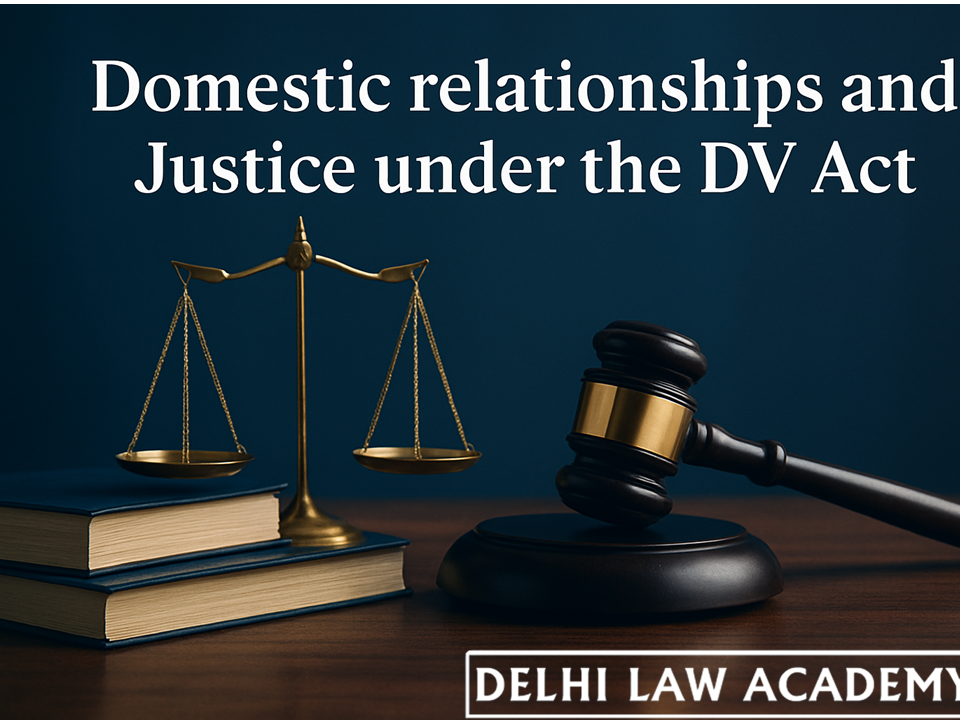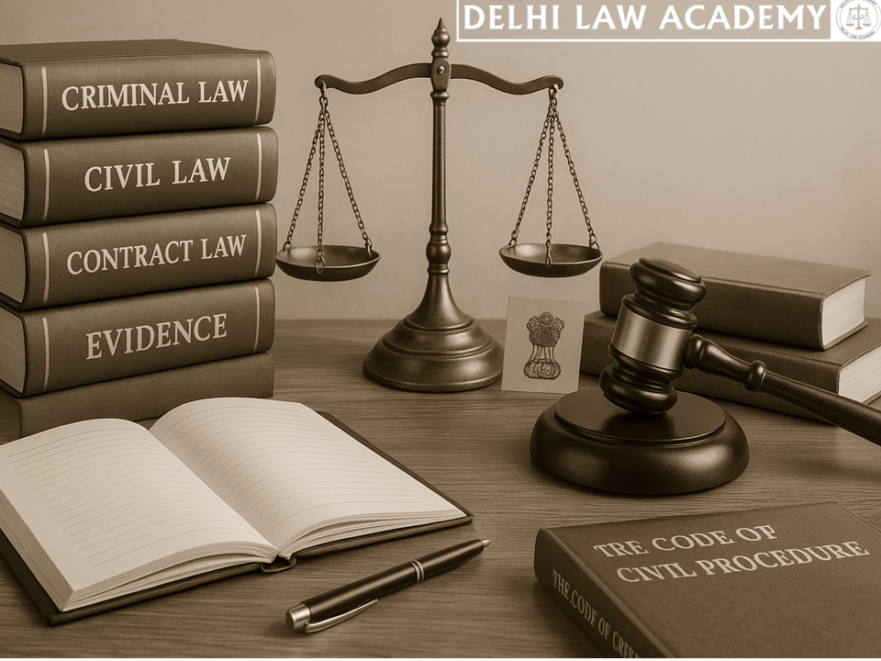
⚖️ Domestic Violence Act Explained – Part 2 (Questions 11–20)
Delhi Law Academy Jaipur has concisely presented the entire Protection of Women from Domestic Violence Act, 2005 in a simple Q&A format.
❓ Question 11: What is meant by “sexual abuse” under the DV Act?
👉 Answer: “Sexual abuse” includes conduct of a sexual nature that abuses, humiliates, or otherwise violates the dignity of a woman.
❓ Question 12: What is meant by “verbal and emotional abuse” under the DV Act?
👉 Answer: It includes:
- Insults, ridicule, humiliation, and name-calling, especially regarding not having a child or a male child
- Repeated threats to cause physical pain to any person in whom the aggrieved person is interested
❓ Question 13: What is meant by “economic abuse” under the DV Act?
👉 Answer: Economic abuse includes:
- Deprivation of economic or financial resources which the aggrieved person requires or is entitled to (including household necessities, stridhan, jointly or separately owned property, and maintenance)
- Disposal of household effects
- Alienation of assets, valuables, shares, stridhan, or any other property jointly or separately held by the aggrieved person
❓ Question 14: Can any unrelated person provide information about an act of domestic violence?
👉 Answer: Yes. Any person who has reason to believe that an act of domestic violence has been committed or is likely to be committed may give information to the concerned Protection Officer.
❓ Question 15: What are the duties of officials upon receiving a complaint of domestic violence?
👉 Answer: Under Section 5 of the DV Act, police officers, Protection Officers, service providers, or Magistrates must inform the aggrieved woman about:
- Right to seek protection, residence, monetary, custody, and compensation orders
- Availability of service providers and Protection Officers
- Right to free legal services
- Right to file a complaint under Section 498A IPC, wherever relevant
❓ Question 16: What are the duties and functions of Protection Officers?
👉 Answer: Protection Officers must:
- Assist the Magistrate in discharging functions
- Prepare a Domestic Incident Report (DIR)
- Apply for issuance of protection orders
- Ensure legal aid, safe shelter homes, and medical examination for victims
- Oversee compliance of monetary relief under Section 20
❓ Question 17: Who is a service provider under the DV Act?
👉 Answer: Any voluntary association or company registered with the State Government that aims to protect women’s rights by lawful means. They may provide legal, medical, financial, or other assistance.
❓ Question 18: Who can file an application to a Magistrate under the DV Act?
👉 Answer: An application may be filed by the aggrieved woman, a Protection Officer, or any other person on her behalf.
❓ Question 19: Within what time should a Magistrate dispose of an application?
👉 Answer: The Magistrate shall endeavor to dispose of every such application within 60 days from the date of its first hearing.
❓ Question 20: When can proceedings be conducted in camera?
👉 Answer: When the Magistrate considers it necessary, or if either party requests, proceedings may be conducted in camera for confidentiality and sensitivity.
🔎 Related:
For Part 1 (Questions 1–10) and more Q&A on the Protection of Women from Domestic Violence Act 2005, see our Domestic Violence Act Part 1.
For Part 3 (Questions 21–30) and more Q&A on the Protection of Women from Domestic Violence Act 2005, see our Domestic Violence Act Part 3.
📘 Want to study more?
Explore Delhi Law Academy’s Complete Study Material for Judicial Services
📘 Free Study Material for Judiciary Aspirants!
Download our FREE study material prepared by Delhi Law Academy’s expert faculty.
Contact us
📍 Delhi Law Academy – Jaipur Branch
6C, Tower 2, Coaching Hub, Pratap Nagar, Jaipur – 302033
📞 Phone:
+91 9911916552
+91 8447285606
✉️ Email:
contactus@delhilawacademy.com

